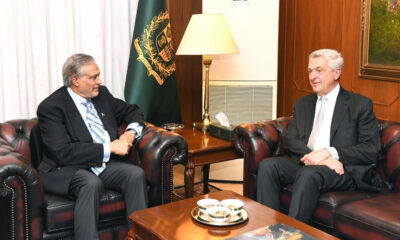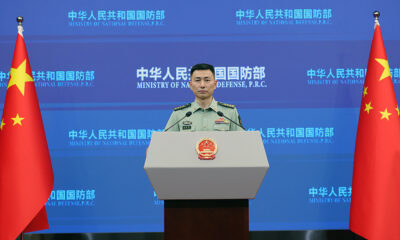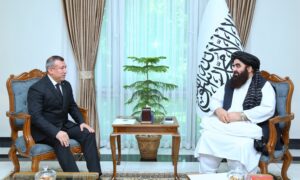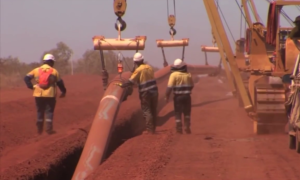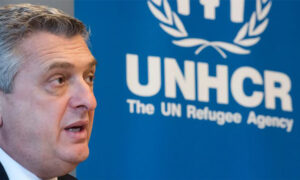Latest News
CENTCOM chief ‘developing concepts’ to deal with ‘terrorists’
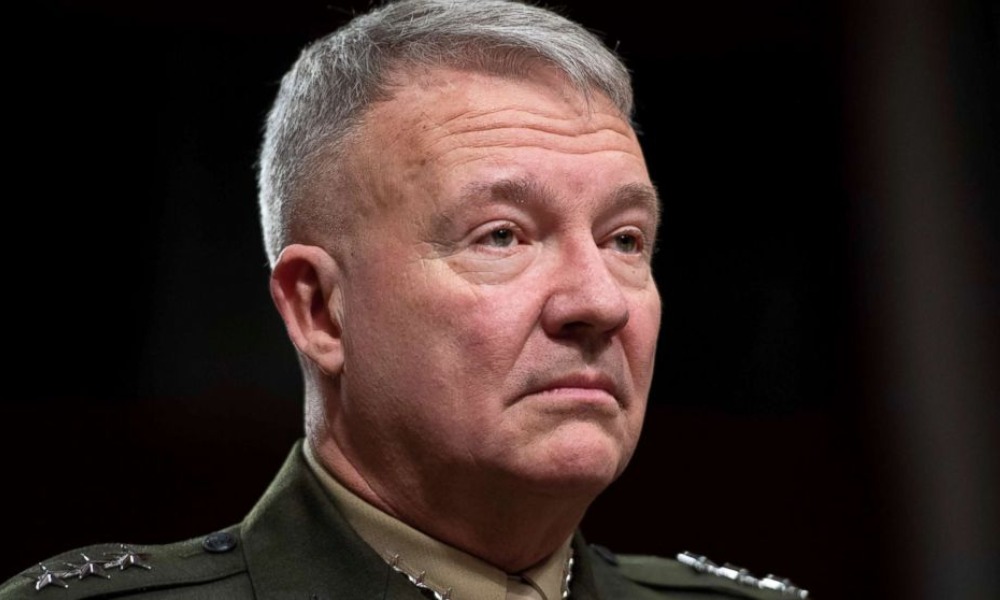
Commander of US Central Command General Kenneth F. McKenzie said on Tuesday he is developing concepts that will preserve the US’s ability to ensure Afghanistan does not again become a safe haven for terrorist attacks against the United States.
He said these concepts will help enhance America’s “ability to strike terrorists and capitalize on partnerships elsewhere in the region.”
He said his headquarters is also working closely with that of U.S Forces Afghanistan and the NATO-led Resolute Support mission “to ensure that we withdraw our forces from Afghanistan in a deliberate synchronized manner that protects our personnel.
He said the U.S will continue to provide security assistance to the Afghan National Defense and Security Forces on a bilateral basis.
“The department [of defense] is working through how we will manage this effort without personnel in Afghanistan, to manage security assistance, we’re also steadfastly supporting ongoing diplomatic efforts to resolve Afghanistan’s long war while holding the Taliban to their part of the February 2020 commitment that they will end their relationship with al-Qaeda and prevent the use of Afghanistan by any group or individual against the security of the United States and its allies,” he said.
McKenzie’s comments coincided with a US Senate Foreign Relation Committee hearing on Tuesday, which saw lawmakers raise concerns about the future of Afghanistan post troop withdrawal.
“How we withdraw and what political arrangement is left in our wake matters deeply,” US Senate Foreign Relations Committee Chairman Bob Menendez said.
“If the Taliban were to come back to power, the reality for Afghanistan’s women and girls, I think, would be devastating.”
Menendez said that he doesn’t “believe under any circumstances that the United States Senate will support assistance for Afghanistan, especially under the World Bank’s program which provides budget support, if the Taliban has taken a governing role that ends civil society advances and rolls back women’s rights.”
But US peace envoy Zalmay Khalilzad said any future support of a government that included the Taliban would be conditional.
“If they do want US assistance, they want international acceptance … those things will be all affected by how they treat their own citizens, first and foremost the women of Afghanistan, children and minorities,” Khalilzad said at the hearing.
“We should all remain concerned that those rights could suffer,” he said.
Asked if the US would keep any leverage to protect those rights once its troops are gone, Khalilzad said aid and other types of diplomatic support “would be not available if they did not respect the human rights of Afghan women or others.”
Senator Jim Risch said the US military withdrawal should proceed only with safeguards for the gains the US has made in Afghanistan.
“I have deep concerns about the administration’s rush for the exits in Afghanistan,” Risch said.
“I hope I’m wrong, but I’m concerned that the administration’s decision may result in a Taliban offensive that topples the government.”
But Khalilzad said that he doesn’t “believe the (Afghan) government is going to collapse or the Taliban is going to take over.”
“The choice that the Afghans face is between a negotiated political settlement or a long war,” he added.
Latest News
US Congress to hold meeting to review situation of Afghan women

The U.S. Congressional Human Rights Commission said in a statement it will hold a meeting on Tuesday this week to review the situation of Afghan women.
This meeting will be held on Tuesday next week with the presence of Rina Amiri, the US special representative for Afghan women’s affairs, Heather Barr, director of the Women’s Rights Division at Human Rights Watch and a number of other Afghan women.
Based on the statement of the commission, the participants of this meeting will review the human rights issues including the situation of women and girls in Afghanistan and provide recommendations for the action of the US Congress.
“Since August 2021, the situation of Afghan women and girls has significantly worsened. A growing list of severe restrictions imposed by the Taliban has severely reduced women’s ability to participate in public life,” the statement read.
This commission also pointed to the prohibition of women from work and denial of access to education, adding that the control over women’s private lives has increased.
Meanwhile, the Islamic Emirate has always rejected concerns about the violation of women’s rights in Afghanistan and emphasized that it is committed to respecting women’s rights in accordance with Islamic Sharia.
Latest News
Pakistan and Turkmenistan agree to fast-track gas pipeline project involving Afghanistan and India
The Turkmenistan-Afghanistan-Pakistan-India (TAPI) pipeline will originate from Galkynysh, the world’s second-biggest gas field, and end at the Indian city of Fazilka near the Pakistan border.
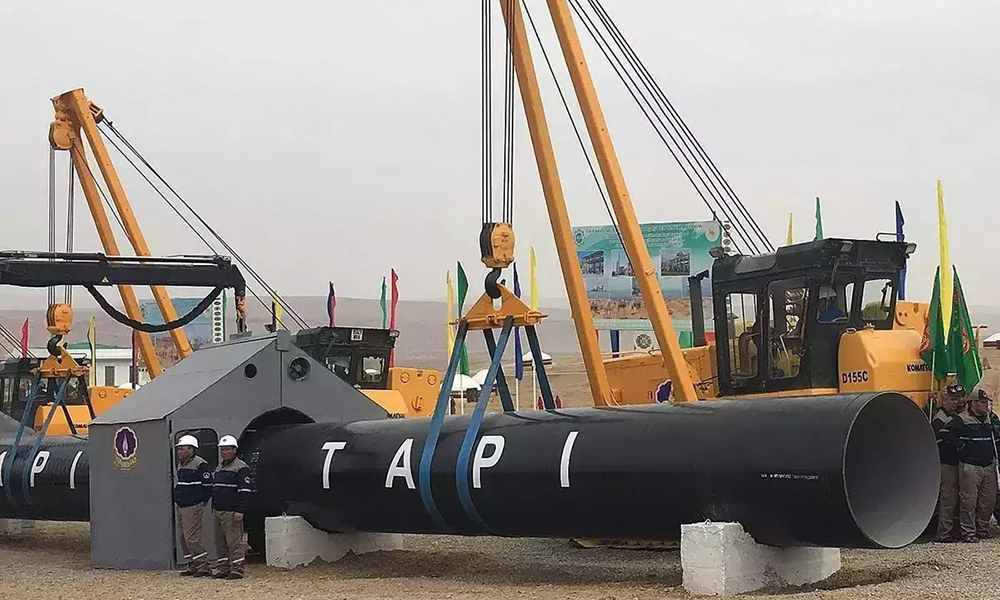
Pakistan and Turkmenistan agreed on Wednesday to fast-track a major pipeline project that will allow the Central Asian state to supply natural gas to Pakistan and India via Afghanistan, thereby enhancing economic activity across the region and benefiting all involved countries.
The understanding between the two states was reached during a meeting between Federal Minister for Petroleum Dr. Musadik Malik and Turkmenistan’s Foreign Affairs Rasit Meredow who arrived on a two-day visit to Islamabad on Tuesday.
The Turkmenistan-Afghanistan-Pakistan-India (TAPI) pipeline will originate from Galkynysh, the world’s second-biggest gas field, and end at the Indian city of Fazilka near the Pakistan border.
If the project is implemented, it will help Turkmenistan supply about 33 billion cubic meters (bcm) of natural gas each year along a route covering a distance of over 1,800 kilometers.
According to an official statement released by the Ministry of Energy’s Petroleum Division, Pakistan and Turkmenistan are working to “expedite” the pipeline project.
“TAPI pipeline project will lower energy costs, which can boost industrial growth, create jobs and foster economic development,” it quoted Pakistan’s petroleum minister as saying during the meeting. “Reliable and affordable energy supplies are vital for industrial sectors and overall economic stability.”
“This project, aimed at fostering economic integration and energy security, has witnessed substantial progress through collaborative efforts,” he continued, stressing the importance of continued engagement between the two countries.
Malik added Pakistan was fully committed to the project which was vital for regional energy cooperation and infrastructure development.
The visiting dignitary expressed appreciation for the warm welcome extended to his delegation by the Pakistani authorities.
“Together we will chalk out a roadmap for cooperation between both countries,” he added.
The meeting was also attended by the CEO of TAPI Pipeline Company Limited.
Other participants of the meeting emphasized the project’s strategic importance in enhancing regional connectivity, promoting economic growth and meeting the energy demands of participating nations.
The TAPI project was envisaged in the early 1990s and officially agreed upon in December 2010.
It has primarily been delayed due to security concerns, geopolitical tensions, funding challenges and bureaucratic hurdles.
Related Stories:
Acting FM discusses TAPI project with Turkmenistan’s envoy in Kabul
Latest News
Pakistan, UNHCR agree on lasting solutions for afghan refugees
The recent attacks and violent demonstrations by Afghani diaspora against Pakistan’s Diplomatic Missions in Frankfurt, London and Brussels also came under discussion, Radio Pakistan reported.
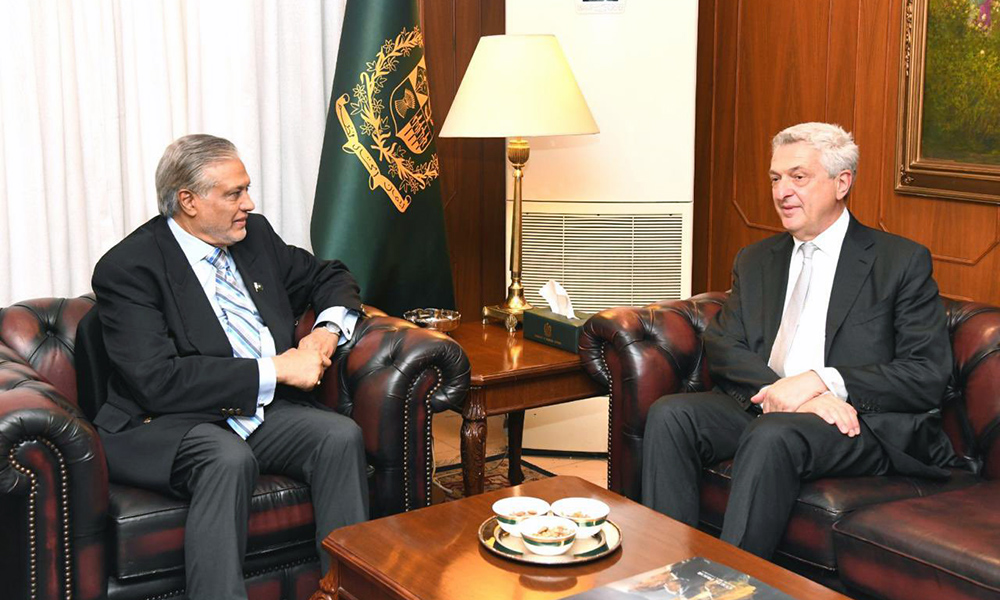
Pakistan’s Deputy Prime Minister and Foreign Minister Mohammad Ishaq Dar on Friday held a telephonic conversation with the United Nations High Commissioner for Refugees Filippo Grandi.
They discussed matters related to Pakistan-UNHCR cooperation.
The recent attacks and violent demonstrations by Afghani diaspora against Pakistan’s Diplomatic Missions in Frankfurt, London and Brussels also came under discussion, Radio Pakistan reported.
The High Commissioner appreciated Pakistan’s traditional hospitality towards Afghan refugees, in particular the recent decision by the Government of Pakistan to extend the validity of Proof of Registration Card.
Deputy Prime Minister and Foreign Minister and the High Commissioner agreed to continue to work together to advance Pakistan-UNHCR cooperation and find lasting solution to the issue of Afghan refugees, read the report.
This comes after the Ministry of Refugees and Repatriation of Afghanistan has announced that Pakistan has extended the POR (Proof of Registration) cards for Afghan refugees for another year.
On Thursday, July 25th, the Ministry reported on X that the Afghan Commissioner for Refugees in Islamabad confirmed the extension of POR cards for Afghan refugees residing in Pakistan. The new validity of these cards is from June 1, 2024, to June 30, 2025.
This extension comes amid rising tensions as the Pakistani government has been deporting over two thousand individuals daily. Despite the extension, Afghan refugees holding POR cards are increasingly concerned about the possibility of forced deportation to Afghanistan.
Related Stories:
Longer-term solutions needed for issue of Afghan refugees in Pakistan: UNHCR chief
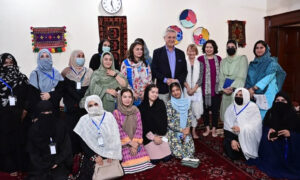
UNHCR chief discusses Afghan refugee issue with Pakistan’s deputy PM
-

 Sport4 days ago
Sport4 days agoOlympics finally here; What you need to know
-

 Latest News5 days ago
Latest News5 days agoOCHA reports 110 die in landmine explosions in Afghanistan every month
-

 Regional5 days ago
Regional5 days agoChina braces for twin tropical cyclones after deadly flash floods
-

 World5 days ago
World5 days agoBiden ends failing reelection campaign, backs Harris as nominee
-

 Health4 days ago
Health4 days agoHealth partners provide services 589,205 people in Afghanistan in last month
-

 Latest News3 days ago
Latest News3 days agoAfghanistan’s Hajj ministry confirms death of 27 pilgrims in Mecca and Medina
-

 Business4 days ago
Business4 days agoConference on Islamic microfinance kicks off in Kabul
-

 Sport4 days ago
Sport4 days agoACB proposes ODI fixtures against top-tiered teams










